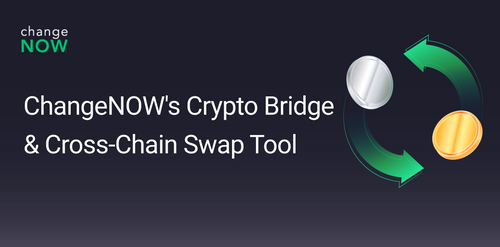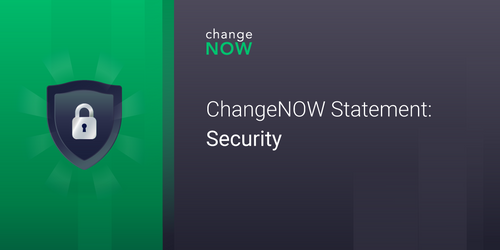Sidus: The Intersection of Gaming and DeFi—How This Metaverse Token Is Redefining Digital Ownership

Sidus Heroes is revolutionizing the gaming world by blending traditional gaming with the metaverse and decentralized finance (DeFi). This innovative approach turns the conventional gaming model on its head by valuing player time and investments, transforming them into tangible assets within its expansive universe. From multiplayer arenas to single-player adventures across various platforms, Sidus not only enriches your gaming experience but also offers the unique opportunity for players to earn and own parts of the game itself through a novel Module Economy. This ecosystem supports actual ownership and earning potential through gameplay, setting a new standard in how digital worlds and real-world value can intersect. Dive into our interview to explore how Sidus is pioneering these thrilling advancements and join us in a discussion with the Sidus representatives who provide deeper insights into their visionary project.
Metaverse and Gaming Innovation
Question: Sidus Heroes combines gaming with the metaverse and DeFi. How do you see this fusion shaping the future of digital entertainment, and what unique features does Sidus offer compared to other blockchain games?
Classic gaming is somewhat outdated—it's a one-way street. Users purchase a product, spend money, and receive nothing in return except for the gaming experience. Moreover, there is no option to transfer progress between titles. Essentially, users invest time and money without any possibility of getting it back or gaining anything further. Sidus operates on the opposite logic and stands at the forefront of innovation! The core idea is to value the user's time and increase their assets. The gaming ecosystem consists of seven products on different platforms — web browser, desktop, mobile, mini-applications — and users can transfer progress between them thanks to a unified value system. All the titles are comfortably playable on basic-level devices. This way, Sidus Heroes allows users to choose between genres and platforms while simultaneously increasing the value of their time spent in the game. Another unique feature of the metaverse is Module Economy, which allows players to become co-owners of services and receive passive income according to their share. Any service within the ecosystem (e.g., Marketplace, Staking) is a module that requires resources for its construction and launch. Users can contribute resources and tokens they've earned while playing to speed up the launch process. In return for their contributions, they receive a share of all future revenues from that specific module, thus becoming co-owners of the metaverse and having a vested interest in its development. No other metaverse offers anything similar. In Sidus Heroes, we see the future of gaming as a combination of quality game titles with the ability to monetize your gaming time.
NFTs and Player Ownership
Question: What role do NFTs play in the Sidus ecosystem, and how do they enhance the concept of digital ownership for players?
NFTs are an integral part of the Sidus Metaverse. For instance, to gain full access to the Nidum station (Arena Battler), players need to purchase NFT cards or pay a subscription that grants them three NFT Heroes. Depending on the NFT level, you receive various benefits. Valuable resources and in-game items are also NFTs and can be traded on the Marketplace. This also applies to other titles — Xenna, Tembazar, Asterally. Cyborg parts, oil harvesters — all of these are NFTs. In the future, players will have the ability to tokenize their shares in modules. We aim to reach a point where practically everything within the metaverse will be NFTs with real value for the player.
Ecosystem and Token Utility
Question: Can you elaborate on how the SIDUS token is integrated within the ecosystem and the specific advantages it offers to both gamers and investors?
As the native token of the metaverse, SIDUS is widely used both in-game and out-of-game. Its in-game utility covers rewards from battles, events, co-ownership, and loot boxes. SIDUS is also used for transaction fees, upgrades, and module construction. It fuels marketplace trading, payments for services, and is available for staking, among other things! Outside the gaming ecosystem, users can utilize SIDUS for in-house DeFi services (e.g., Farming and Staking) and as a means of payment on the NFT Marketplace. It’s worth mentioning that staking SIDUS gives access to exclusive IDOs on the SidusPad launchpad. Community members can earn SIDUS as rewards for various events. The deflationary model and actions aimed at reducing the supply, thereby maintaining SIDUS's value, make it a great asset to HODL.
Future Development and Competitiveness
Question: What are the key milestones on Sidus’s roadmap, and how do you plan to maintain competitiveness as more projects enter the crypto gaming space?
One of the main areas of focus right now is TON Station — a Telegram mini-app with two million users. It’s simultaneously a clicker, a mini-game, a gaming project aggregator, and a gateway to the Sidus Metaverse. An airdrop and listing of the native $SOON token are planned for Q4 2024.
The team is actively developing a new version of the Nidum Arena Battler, which will completely change the game concept. We are also porting Tembazar to desktop and working on an innovative concept — Sidus Maze — a casual survival game launching via NFTs!
We are working on new exciting listings for SIDUS token, as well as preparing updates for our launchpad — SidusPad. There’s a lot of work to be done, and the results will be amazing!



